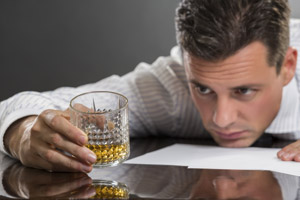 Watch Out for These Signs of Relapse
Watch Out for These Signs of Relapse
Going through rehab and getting clean from drugs or alcohol, or both, is a remarkable achievement. Unfortunately, doing so is just the first step in a long journey. You will be in recovery for the rest of your life, and you will always fight the urge to use again. The good news is that the urge will get weaker with time.
Chronic Illness and Relapse Rates
While you may never be free from your cravings, understanding your disease and the likelihood of relapsing can help you be strong in the face of those urges. Addiction is a chronic illness, which means that you have it for life. Other chronic illnesses include diabetes, high blood pressure and asthma. As with any chronic disease, you may heal from your addiction for a period of time, but there is always the possibility that it will come back. According to reports from the Centers for Disease Control and Prevention (CDC), drug addicts relapse at similar rates to those with other chronic conditions. The CDC estimates that 40 percent to 60 percent of addicts will relapse after treatment. Other estimates are even higher, with up to 90 percent of alcoholics relapsing. These statistics should not make you despair — they should help you better understand your illness. Relapse is not only a possibility, it is likely. If you relapse, it is not the end of the world. It simply means your illness is back for a time, and you may need a little more treatment to get better again. Although relapsing may begin to feel inevitable, it doesn’t have to be. If you keep up with support groups, occasional treatment and healthy relationships with supportive people, you have a good chance of avoiding relapse. Even with your best efforts, though, you will still feel urges. You can resist them by being proactive. Understand the signs that you are leading up to a relapse, and recognize them so you can take action and get help:
- Getting lax about support: If you decide you don’t need your support group anymore, or your occasional therapy sessions, your attitude may be changing. This could be a lead to a relapse.
- Feeling stressed: When your stress levels rise, whether it is related to addiction or not, your urges to use will go up as well. Recognize stress and work to reduce it.
- Changing social habits: Watch out for signs that you are feeling unsociable. If you start to withdraw from friends and family, be aware.
- Losing routine and structure: Following a stint in rehab, a routine is an excellent way to get back into a normal, drug-free life. If the way you have structured your life has helped you stay clean, a break down in that structure could mean you’re heading for a relapse.
- Losing control: A common feeling for drug abusers is the loss of control. If you start to feel as if you are losing control over your life and your ability to resist urges, get help right away.
Your cravings and urges are never truly going to disappear. Just remember that you are coping with a chronic illness that requires lifelong treatment. When you are fully able to comprehend that fact—and act accordingly—you can learn to control your urges. Rely on the support of others, and your own self-awareness, to get you through your cravings and to come out on the other side.

